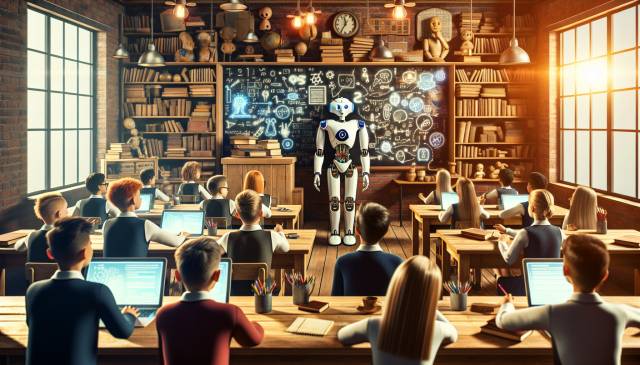
In recent years, artificial intelligence (AI) has rapidly transformed various sectors, and education is no exception. As learners, understanding how AI can enhance your educational experience is crucial. This post delves into the intersection of AI and education, exploring its benefits, challenges, and future implications.
Understanding Artificial Intelligence
Artificial intelligence refers to the simulation of human intelligence in machines programmed to think and learn. In the context of education, AI can personalize learning, improve teaching methods, and optimize administrative tasks.
How AI is Shaping Education Today
AI is increasingly being integrated into educational frameworks, offering innovative solutions for both learners and educators. Here are some ways AI is currently impacting education:
- Personalized Learning: AI can analyze individual learning patterns and adapt educational content to meet the specific needs of each student.
- Intelligent Tutoring Systems: These systems offer one-on-one tutoring and feedback, helping students grasp complex concepts at their own pace.
- Administrative Efficiency: AI can automate grading and administrative tasks, allowing educators to focus more on teaching and less on paperwork.
- Data-Driven Insights: AI tools can analyze student performance data, providing educators with insights to improve instructional strategies.
Benefits of AI in Education
Incorporating AI into education brings a myriad of benefits:
- Enhanced Engagement: Interactive AI tools make learning more engaging and fun, motivating students to participate actively.
- Accessibility: AI can help break down barriers for students with disabilities by providing tailored resources and support.
- Scalability: AI solutions can be scaled to meet the needs of large classrooms, ensuring that every student receives attention.
- Continuous Improvement: AI systems can learn and evolve, continuously improving their effectiveness based on feedback and outcomes.
Challenges and Considerations
Despite its advantages, the integration of AI in education also presents challenges:
- Data Privacy: The use of AI requires data collection, raising concerns over student privacy and data security.
- Equity Issues: Not all students have equal access to technology, potentially widening the educational gap.
- Dependence on Technology: Over-reliance on AI tools can lead to diminished critical thinking and problem-solving skills.
The Future of AI in Education
The future of education is undoubtedly intertwined with the advancement of AI technology. Here are some predictions about how AI might shape the future of learning:
- Adaptive Learning Systems: Future AI systems will become even more sophisticated, adapting teaching methods to meet the evolving needs of students.
- AI Collaborations: Collaborations between AI and educators will lead to innovative teaching strategies that improve student outcomes.
- Global Learning Communities: AI can facilitate connections between students and educators around the world, fostering a more collaborative learning environment.
- Continuous Learning: Lifelong learning will be enhanced by AI, providing personalized learning pathways for individuals throughout their careers.
Getting Started with AI in Your Learning Journey
As a learner, you can begin leveraging AI in your education. Here are some steps to get started:
- Explore AI-Powered Platforms: Look for online courses and platforms that utilize AI to personalize your learning experience.
- Stay Informed: Keep abreast of the latest developments in AI and education by following relevant blogs, podcasts, and research.
- Participate in Discussions: Engage with peers and educators about the role of AI in education, sharing insights and experiences.
- Embrace Technology: Be open to using new tools that incorporate AI, as they can enhance your learning process.
In conclusion, artificial intelligence is a powerful tool that can significantly enhance the educational landscape. By understanding its benefits and challenges, learners can harness AI to optimize their learning experiences and prepare for a future where AI plays an integral role in education.

